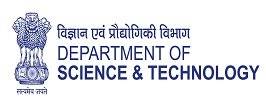DST has the following as the mandate and major responsibilities
- Formulation of policies relating to Science and Technology (S&T).
- Matters relating to the Scientific Advisory Committee to Cabinet (SAC-C).
- Promotion of new areas of S&T with special emphasis on emerging areas.
- i) R&D through its research institutions or laboratories for development of indigenous technologies concerning bio-fuel production, processing, standardization and applications, in co-ordination with the concerned Ministry or Department;
- ii) R&D activities to promote utilization of by-products to
develop value added chemicals.
- Futurology.
- Coordination and integration of areas of S&T having cross-sectoral linkages in which a number of institutions and departments have interest and capabilities.
- Undertaking or financially sponsoring scientific and technological surveys, research design and development, where necessary.
- Support and Grants-in-aid to Scientific Research Institutions, Scientific Associations and Bodies.
- All matters concerning:
- i) Science and Engineering Research Council/Board (SERC/SERB);
- ii) Technology Development Board (TDB) and related Acts such as the R&D Cess Act,1986 and the TDB Act,1995;
- iii) National Council for Science and Technology Communication;
- iv) National S&T Entrepreneurship Development Board;
- v) International S&T Cooperation including appointment of scientific attaches abroad.;
- vi) Autonomous S&T Institutions relating to the subject under DST including Institute of Astro-physics and Institute of Geo-magnetism;
- vii) Professional Science Academies promoted and funded by DST;
- viii) The Survey of India and National Atlas & Thematic Mapping Organisation;
- ix) National Spatial Data Infrastructure and promotion of G.I.S;
- x) The National Innovation Foundation, Ahmedabad.
- Matters commonly affecting Scientific and technological departments/ organisations/ institutions e.g. financial, personnel, purchase and import policies and practices.
- Management Information Systems for S&T and coordination thereof. Matters regarding Inter-Agency/Inter-Departmental coordination for evolving S&T missions.
- Matters concerning domestic technology particularly the promotion of ventures involving the commercialization of such technology other than those under the Department of Scientific and Industrial Research.
- All other measures needed for the promotion of S&T and their application to the development and security of the nation.
- Matters relating to institutional S&T capacity building including setting up of new institutions and institutional infrastructure.
- Promotion of S&T at the State, District, and Village levels for grass- roots development through State S&T Councils and other mechanisms.
- Application of S&T for weaker sections, women and other disadvantaged sections of Society.


